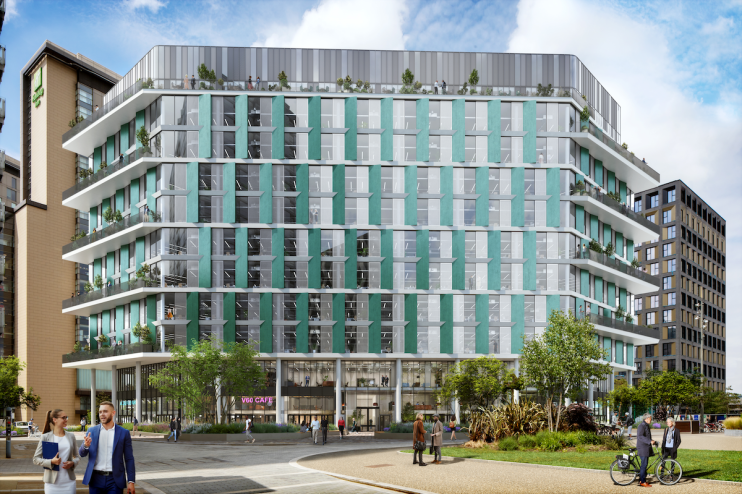Khan to ‘digest’ findings of LandSec report warning London could be ‘unliveable’ in 10 years due to climate inaction

British property investment trust Land Securities (LandSec) has warned cities could become “unliveable” in within 10 years without urgent planning reform to meet net zero goals.
Research published this morning urges reform to prevent the UK’s cities suffering from the impact of climate change and external shocks, such as international conflicts like the war in Ukraine.
The study, worked on with collaboration of the Future Laboratory, issues six urgent principles for the future of urbanisation, including being ‘climate prepared’ and ‘resilient’.
Sadiq Khan’s deputy mayor of London for planning, regeneration and skills, said: “Innovative town planning is a crucial part of the Mayor’s work to build a better London for everyone.
“Many of the principles included in this report are at the heart of the Mayor’s London Plan – and embedded across Mayoral strategies and programmes, including tackling climate change, improving air quality and delivering genuinely inclusive places.
“The Mayor and I will digest the findings of this report as we work to build a safer, fairer, greener and more prosperous city for all Londoners.”
Proposals call for planning which protects people in built up environments and doesn’t rely on international supply chains, while providing a high quality of life by introducing four-day weeks and pedestrianising more roads.
It also places technology into focus and says Brits should have access to more basic public services, through a model that doesn’t focus on the centre, but a network of decentralised points, promoting localism.
In a white paper issued by LandSec, the firm urges lawmakers to take action when it comes to urban planning to avoid a “worst case scenario”.
“The problematic future is one where urban planning and construction take no heed of their environmental impact or climate change and a lack of action on social cohesion results in deepening divisions. We see a city landscape where both people and nature have been depleted.”
The study raised concerns about quality of life for millions of Brits, saying 52 per cent of pensioners do not go outside as often as they want because of a lack of public toilets.
It also said £36m had been cut from annual youth service budgets across London between 2011/2012 and 2021/202212.
LandSec claimed four-day working weeks are beneficial, saying three quarters of UK businesses that have implemented them say staff are 80 per cent happier.
When asked for comment, a UK Government spokesperson for the department for communities, housing a and local government said: “We are taking robust action to ensure the country is prepared to face the challenges of a changing climate. This includes ensuring that our cities and towns have adapted to increasing temperatures, changing building regulations to make sure new homes are fit for the future, and bolstering our flood defences.”
“We have made almost £60 billion available to councils over the next financial year – a nine per cent increase on 2022-23. The majority of the funding is un-ringfenced in recognition of local authorities being best placed to understand local priorities.”
The environment was also major focus for the report, focusing on producing cleaner air and meeting net-zero goals, including by ramping up EV charging points, cutting down car usage and turning more roads into pavements.
The study claims that adding 10 trees to a city block has been found to affect people’s perceptions of their health and wellbeing, equivalent to earning £10,000 more.
Mark Allan, CEO, Landsec said: “We are at a crossroads when it comes to the future of our cities. For the good of our nation’s competitiveness and the opportunities it will provide our communities, we need to focus on the future of our cities today.”
“Put simply, we need to act now – starting with urgently needed policy reform – to achieve a more prosperous and positive future for all. To deliver more jobs, more homes and more growth, we must bring people, business and cities together.
“As an investor, developer and a shaper of places, our own success is intrinsically linked to creating cities that drive good, clean growth and unite communities – to help them thrive for the long-term. This research is guiding us in how we approach the challenges that face us and our industry. My hope is that it will help others and encourage further debate and dialogue.”
The department for communities and local government and City Hall has been approached for comment.